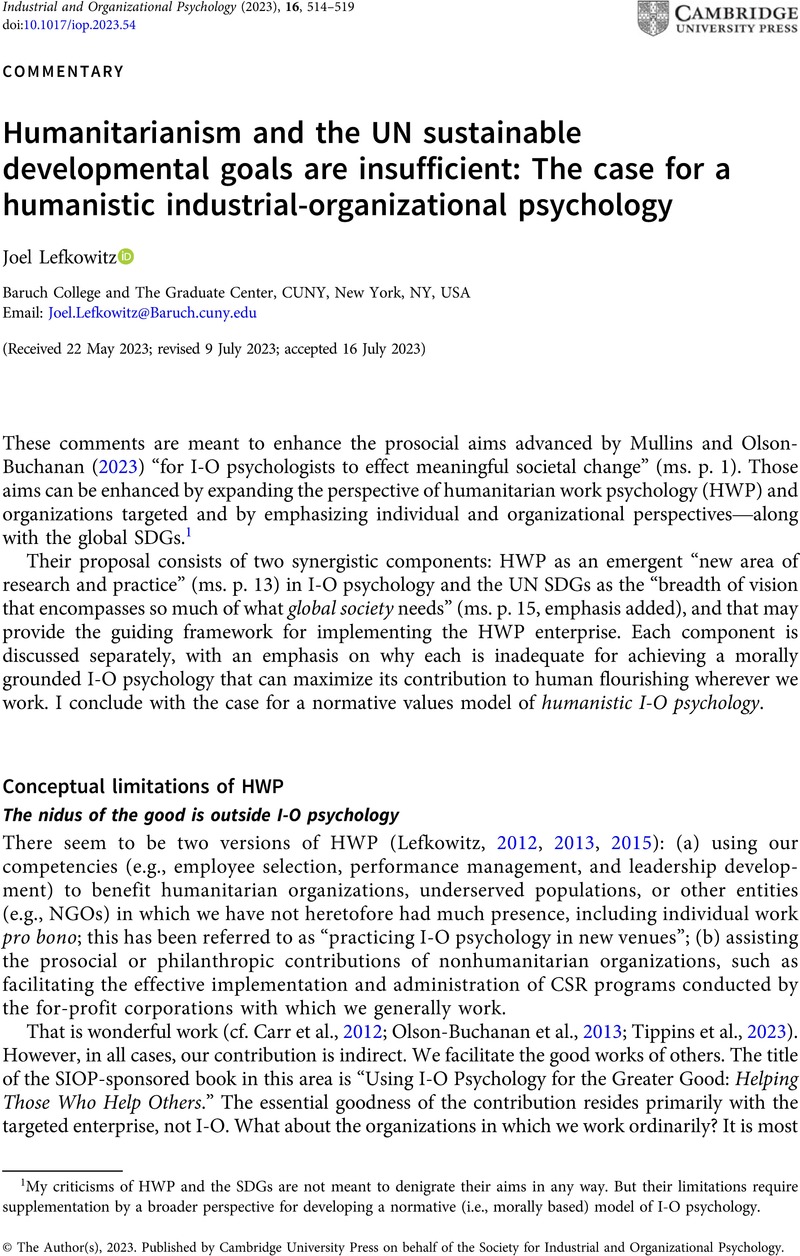Lefkowitz, J. (
2023).
Values and ethics of industrial-organizational psychology (
3rd ed.,
663 pp).
Taylor & Francis/Routledge. First published as Ethics and values in industrial-organizational psychology (2003). Lawrence Erlbaum Associates.
CrossRefGoogle Scholar 